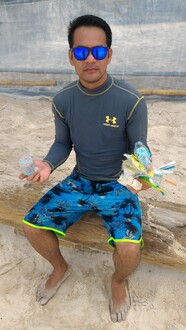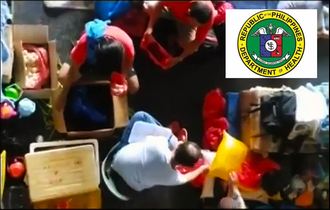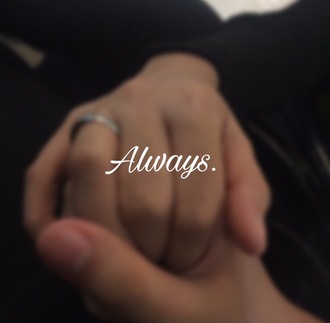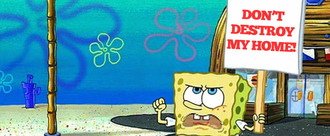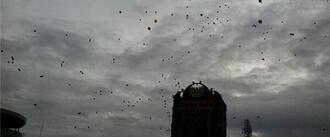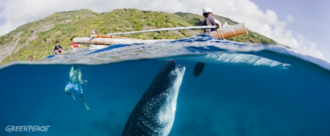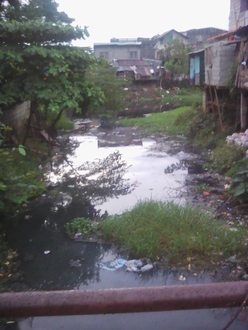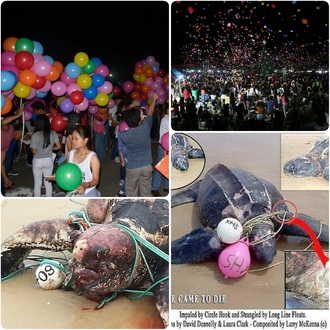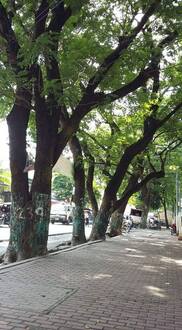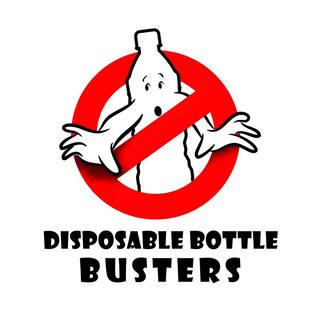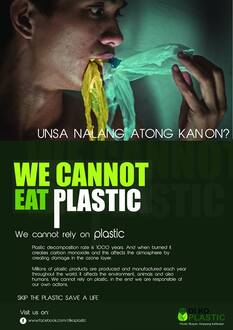-
Save BoracayThis to save our future off-spring or generation.26 of 100 SignaturesCreated by Jesus Jheo Calope Ubaldo Jr.
-
DENR, charge DOH for exploiting turtle eggsMarine turtles are threatened species, classified as Endangered or Critically Endangered because of exploitation for their shells, eggs, and meat; bycatch in fishery; destruction of feeding (seagrass beds and reefs) and nesting beach habitats; pollution, especially plastic trash; and climate change. The only way we can ensure their survival is for us to find ways to stop these threats from affecting their populations. The five marine turtles present in the Philippines are fully protected by the Wildlife Act.305 of 400 SignaturesCreated by Marine Wildlife Watch Philippines
-
Let Love Win.Love doesn't win all the time. Many members of the LGBT+ community still get discriminated by surrounding people who do not share or support beliefs of equality for all. Sometimes, even by the people they thought would understand the most. We cannot always avoid the cruel derogatory names, the shaming, the isolation, the glares, the backhanded comments and the harsh treatment. Still, we endure. But we can only endure so much. Sometimes, the abuse becomes clearer, the bruises bluer and eyes more swollen from sleepless nights spent crying. Sometimes these things happen within our very own homes. Love doesn't win all the time. But by signing into this petition, you agree that the abuse should stop, for once. That love should win, for once. Raise awareness for homophobia within family and social circles. Let them know that you know they're doing it wrong. Let them know you care. And thank you, on behalf of the LGBT community.9 of 100 SignaturesCreated by Raine Canlas
-
No to Nickelodeon's Underwater Theme Park in PalawanContrary to the press statement that the underwater theme park would "advocate ocean protection," it will accomplish the exact opposite. By building artificial structures, you will undeniably damage and disrupt Palawan's marine ecosystems -- our Last Frontier. If you are sincere and serious about marine conservation, the money allocated for the underwater theme park should be invested in marine protected areas, sustainable livelihoods for local communities, and environmental education programs. For a channel that targets children, Nickelodeon is setting a terrible example to the younger generation by taking away their right to enjoy our natural resources. We don't need an underwater theme park -- our underwater life is fascinating, entertaining, and educational on its own.281,019 of 300,000 SignaturesCreated by Anna Oposa
-
Stop the Release of Balloons during Sinulog 2017For the past years, it has been a common tradition or practice of the devotees of Señor Santo Niño to write their letters or wishes to the Holy Child Jesus, tie it to a red balloon and release it to the air, with the mindset that their wishes and letters will reach Señor Santo Niño and will soon be answered. This action is not only a false belief but it also harms the creations that our Almighty Father told us to take care of. The balloons that the devotees release will eventually deflate and end up becoming waste and end up in our oceans where it can possibly harm marine animals.167 of 200 SignaturesCreated by Niña Kattisha Rae Rama
-
Stop swimming with whale sharks in OslobFilipinos were alarmed at the news of the Miss Universe candidates' visit to Oslob, Cebu, to interact with whale sharks. In the last few years, Oslob has become a controversial tourist destination because the whale sharks are fed dead, frozen shrimp (uyap), disrupting their natural behavior and diet. "Whale sharks naturally do not spend a lot of time at the surface or in shallow waters, and are migratory species," said AA Yaptinchay, Director of Marine Wildlife Watch of the Philippines. "They’re not supposed to stay in one site for prolonged periods of time. Conditioning whale sharks to approach boats can make them more susceptible to injuries and poaching." Tourism remains unregulated; even if policies have been put in place locally, these destinations find it hard to implement them. In 2016, the International Union for Conservation of Nature (IUCN) Red List of Threatened Species, classified whale sharks as "endangered." Protected in 1998, the whale shark was the first and one of the few protected shark species in the Philippines. "With Miss Universe visiting Oslob, it will inevitably be promoting the site to the entire world. We are concerned that this will bring more tourists to Oslob, aggravating the existing problem in the area," added Anna Oposa, co-founder of Save Philippine Seas. "This is also tantamount to the Philippine government telling the world that it is okay to patronize the feeding of the whale sharks and unsound marine wildlife interaction practices." Vince Cinches, Oceans Campaigner of Greenpeace Philippines, said, "There should be a move to better protect and conserve these species, given their endangered status through a national policy. To reverse the possible impacts, the organizers should publicly say that feeding whale shark is wrong and for tourists to follow interaction guidelines. Being the epicenter of global marine biodiversity the Philippines should pass a national law to ensure that sustainable tourism is in place and that feeding and other harmful activities will no longer happen in the future.” SIGN this petition if you care about whale sharks and marine life in the Philippines!2,706 of 3,000 SignaturesCreated by Deng Garcia

-
Clean up the Floodway River and CreeksFloodway River and the creeks in Floodway is a water system leading to Laguna de Bay thus polluting our water system because of the rampant throwing of garbage of the citizen and because there has been no law that was pass by the local government to serve punishment to those who throw garbage in the said river and creek.144 of 200 SignaturesCreated by Rome Ranosa
-
SAY "NO" TO SPARK HUNDRED ISLANDS FESTIVALBeach litter surveys have shown the amount of balloons and balloon pieces found on the beach have tripled in the past 10 years. Anything that goes up must come down, same as to those lanterns and balloons released into the air where they can wreak havoc into wildlife either land or sea.. Dolphins, whales, turtles, and many other marine species, as well as terrestrial animals such as cows, dogs, sheep, tortoises, birds and other animals have all been hurt or killed by balloons. The animal is usually killed from the balloon blocking its digestive tract, leaving them unable to take in any more nutrients. It slowly starves to death. The animals can also become entangled in the balloon and its ribbon making the animal unable to move or eat. Sea turtles are particularly at risk because they naturally prey on jellies, which balloons can easily be mistaken for, even with human eyes. Balloons can take years to break down, even the so-called “biodegradable” latex ones. This gives plenty of time for it to travel and encounter many animals that may mistake it for a tasty snack, or accidentally get entangled in it. source: http://balloonsblow.org/impacts-on-wildlife-and-environment/1,232 of 2,000 SignaturesCreated by Juan Dela Cruz
-
Pass the Shark, Ray, and Chimaera Conservation ActSharks, rays, and chimaeras, referred to collectively as sharks, are valuable to our seas and the world’s oceans, represented with over 1,000 shark species worldwide. Approximately 200 of these are found in the Philippines. The country has earned a unique position globally in shark biodiversity, ranking fourth after Australia, Indonesia, and Japan, and second in Southeast Asia after Indonesia. Protecting sharks in the Philippines is in our best interest. Their presence is beneficial to both our economy and ecosystems. Fisheries on sharks have been historically practiced in the Philippines, with municipal dominating over commercial fisheries. Shark-based tourism contributes to the local economy, as well, such as Donsol in Sorsogon and Malapascua Island in Cebu. Tourism supports networks and job opportunities for the locals and businesses. Ecological benefits of sharks include keeping coral reefs and seagrass beds healthy, fish populations robust, and nutrient cycling in the seas functioning. Healthy shark populations mean healthy seas. Despite their value, sharks in the Philippines remain vulnerable to a wide range of threats, mostly due to exploitation, such as directed fisheries, accidental fishery or bycatch, marine debris, habitat destruction, weak law enforcement, and unregulated tourism. A shark’s inherent biological characteristic of having low reproductive potential compared to other fishes means that it need extra conservation attention not given to other species. However, the listing of several shark species in the Convention on International Trade in Endangered Species of Wild Fauna and Flora (CITES) in August 2019 and the Convention on Migratory Species (CMS) in October 2017 only proves the urgent need for the Philippines to conserve our dwindling shark populations. To date, only 25 species of sharks are protected in the Philippines. Marine Wildlife Watch of the Philippines, Save Philippine Seas, Greenpeace Philippines, and several other organizations that are members of the Save Sharks Network Philippines (SSNP) launched the Pating, Saan ka Pararating?: the 2020 Conservation Roadmap for Sharks and Rays in the Philippines in November 2017. The 2020 Roadmap tackles the complex issues surrounding shark conservation but more importantly, serves as a guide to align efforts of all stakeholders toward a common vision of conserving sharks and rays in the Philippines through these conservation pillars: research, communication, community engagement, and governance. The 2020 Roadmap is designed for use by different agencies, organizations, and individuals to execute their commitments on their own or through concerted efforts. The “An Act Regulating the Catching, Sale, Purchase, Possession, Transportation, Importation, and Exportation of All Sharks, Rays, and Chimaeras and any Part Thereof in the Country,” also known as the Philippine Shark Conservation Bill was introduced by Sen. Risa Hontiveros last July 4 (Senate Bill 1863) and again by Representative Gloria Macapagal-Arroyo on July 9 (House Bill 7912) during the second regular session of the 17th Congress of the Philippines. SB 1863 had its first reading on July 25 and was referred to the Senate Committee on Agriculture and Food (primary), and the Senate Committee on Environment and Natural Resources (secondary). HB 8926, substituting HB 7912, was approved during its third and final reading on February 4 2019, and has been transmitted to the Senate on February 6 2019. Unfortunately 17th Congress has already ended, once again requiring both bills to be filed in both Senate and House of Representatives. In July 2019, Sen. Cynthia Villar filed the same bill (Senate 335) and Sen. Hontiveros refiled it (Senate Bill 360) at the beginning of the 18th Congress. The counterpart bills in the House of Representatives were filed by Rep. Alfred Vargas (House Bill 3614) and Rep. Luis Raymund F. Villafuerte, Jr. (House Bill 1684). With your help, SSNP is urging politicians to pass the Philippine Shark Conservation Bill that would allow all shark populations in the Philippines to thrive. This law will support the implementation of shark programs and other conservation management interventions at a national scale. In order to pass this law, the politicians need to hear it from you. Here’s how you can help: 1. Sign this petition and share it with your networks! 2. Share our posts on social media sites and include #ConservePHSharks to increase awareness! Facebook: facebook.com/savesharksph Twitter: @savesharksph 3. Attend/volunteer/get involved in shark projects and research. 4. Do not consume or purchase any product with sharks, rays, and their by-products and derivatives. 5. Report sightings of sharks and ray species in wet markets, dive sites, shops, or restaurants to SSNP. Access SBN 335 here: https://www.senate.gov.ph/lis/bill_res.aspx?congress=18&q=SBN-335 Access SBN 360 here: https://www.senate.gov.ph/lis/bill_res.aspx?congress=18&q=SBN-360 Access HBN 1684 here: http://www.congress.gov.ph/legisdocs/basic_18/HB01684.pdf Access HBN 3614 here: http://www.congress.gov.ph/legisdocs/basic_18/HB03614.pdf You can download the online version of the 2020 Roadmap on bit.ly/SSNP2020Roadmap and check out the 2020 Roadmap posters on bit.ly/SSNP2020RoadmapPosters #ConservePHSharks3,945 of 4,000 SignaturesCreated by Save Sharks Network Philippines

-
STOP CUTTING THE 248 OLD TREES IN FLORIDABLANCA, PAMPANGAThis is important because the trees are a part of our hometown and of our families. Many of us have good memories with these trees. People were not consulted with the tree cutting which was supposed to be done by the LGU before implementing a project.We all know how long it takes for a strong tree to grow. These trees served as our protection against pollution, floods and from the scorching heat of the sun. They have served us well from generation to generation and it is time for us to protect them. As of yesterday, the DENR issued a temporary stop to the cutting of the trees. What we are asking is for a PERMANENT STOP to the cutting of the old trees.640 of 800 SignaturesCreated by Karen Manalansan
-
Ban disposable bottles from school canteensTen reasons why we should ban the sale of disposable plastic bottles in schools: 1. Less Waste. Less than 10% of all plastic waste generated is being recycled. The volume of plastic bottles being generated in school canteens is much too big and not all are being recycled. It doesn't make sense to continue generating this waste. 2. Safer Drinking Water. There is no assurance that water or drinks from disposable bottles are safe to drink. Many bottled water companies do not subscribe to safety standards and water quality is not much better than tap. 3. More expensive than fuel. Bottled water and sugared beverages are much too expensive, especially for students. At most times, bottled water is more expensive that soft drinks and chemical-laden sugared drinks in tetra packs. Water refilling is more allowance-friendly. Students are encouraged to drink more water if they don't have to spend too much to buy it. 4. Better access. While mineral water and bottled beverages can only be sold at school canteens, water refilling stations can be placed strategically all over schools, encouraging students to drink water more. 5. Better health. Water refilling stations provide better access to safe, affordable drinking water. Students drinking more water promote over-all better health for the school community. 6. Water miles. If we are worried about food miles, shouldn't we be also worried more about water miles? Why drink water that came from so far away, water that is bottled months, or even years ago? Transporting these drinks entail a lot of carbon footprint. Be mindful of climate change and the water miles of bottled water. 7. Making the government accountable. Just because we can buy bottled water to drink, it doesn't mean that the government is off the hook in its responsibility to provide safe drinking water for all. Promoting bottled water is allowing the transfer of responsibility to provide clean drinking water from government to the business sector. Water is a right. It should be drinkable from the tap. The government should provide it. 8. Better behavior. Hyper-activity and restlessness among children have been found to be linked to excessive sugar intake. Sugared drinks in disposable bottles are some of the culprits. By eliminating access to such drinks in schools, students can be more sober and calm and thus be in better behavior. 9. Promote healthier options in school canteens. Instead of factory-made drinks, fresh and healthy fruit and herbal drinks should be prepared in schools. 10. Generate more income. More income can be generated if water refilling stations are placed strategically all over schools. Its a win-win situation where the school still gets to earn a income from refilling stations and students get access to safe and cheaper water. Matching schools with local farmers in providing healthy, natural, and organic drinks could also generate local income rather than have the income concentrated only in big companies that bottle water and manufacture chemical and sugar-laden bottled drinks.288 of 300 SignaturesCreated by Shiela R Castillo

-
Plastic Ban in Lapu-Lapu CityTo reduce plastic wastes that are one of the major causes of flooding and pollution. Plastic wastes are not only clogging drainage areas but also the majority of this goes directly to the ocean harming marine animals. Most of the locals as well are still burning plastic wastes which is very harmful for the environment.207 of 300 SignaturesCreated by Mirai Vanessa Macol

